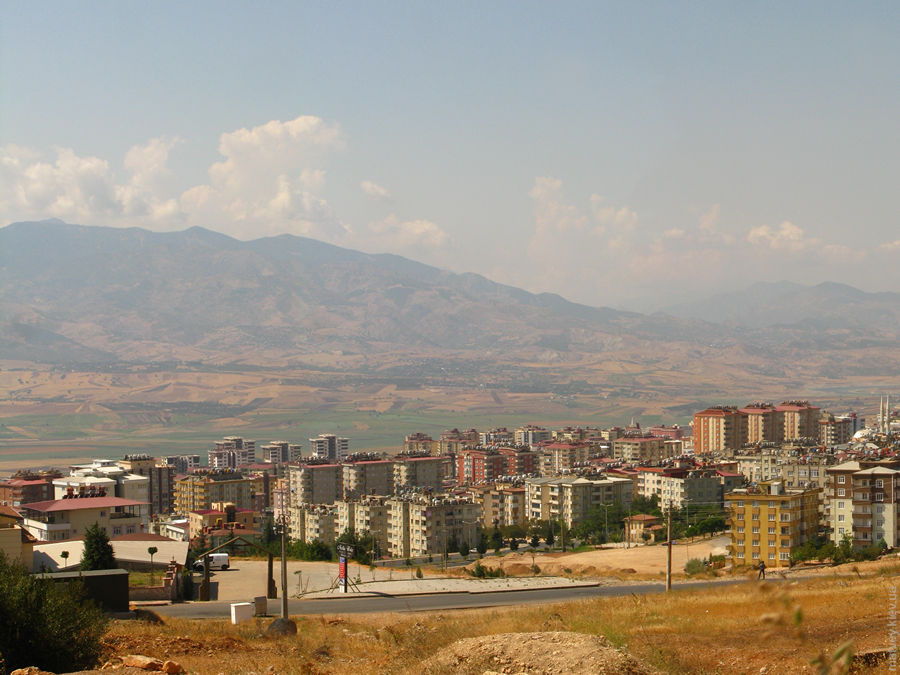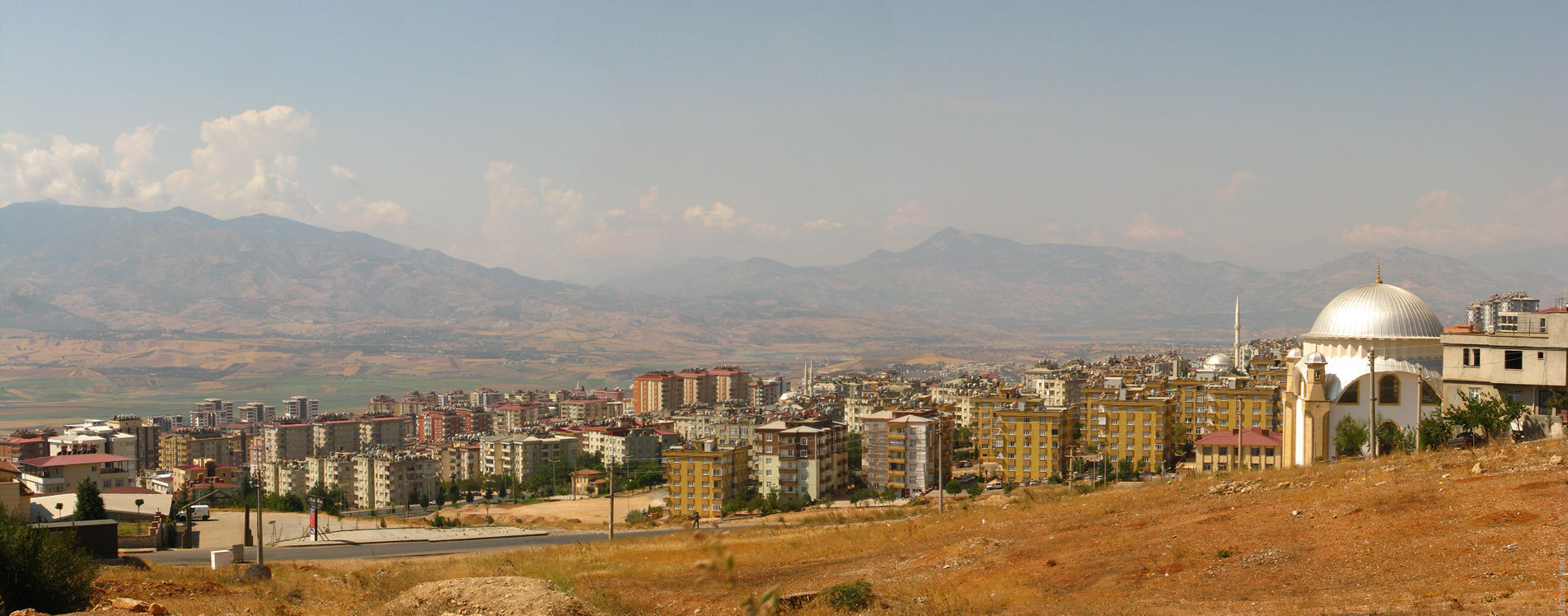You can experience elevation difference of 520 meters while staying inside city limits.
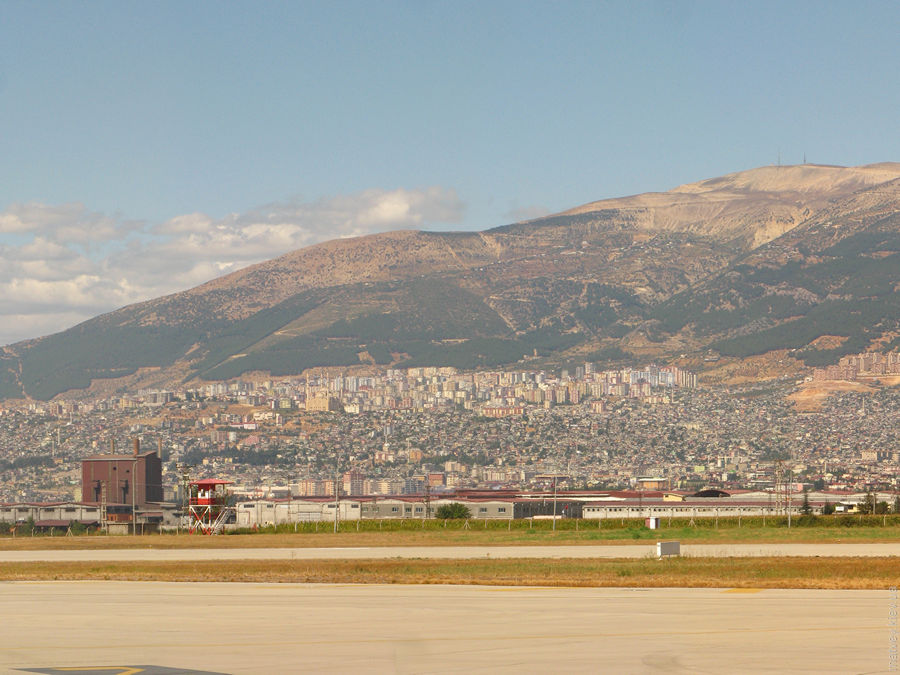

A long mountain hangs over the city, having 1317 meters of elevation. I wanted to hike it, but I didn't, because reasons. The city of Kahramanmarash (often shortened to Marash) is situated in and above a big valley between mountains, ant it is upwards where this city is growing. They said to me that the winds are stronger up there, which is good during the summer heat. Maybe, they also like epic views.
You can experience elevation difference of 520 meters while staying inside city limits.


If you are in the valley, and you want to get to the uppermost houses on the hillside, you will have to gain a vertical kilometer and a bit more. I.e. the Teras cafe, from which I have a photo below, has the difference of 1013 meters with the valley. Incredible. I'd live here.
The city is being developed very fast. It seemed to me that around 300 living houses were being built. You can see the newer and the older parts of Marash from above.
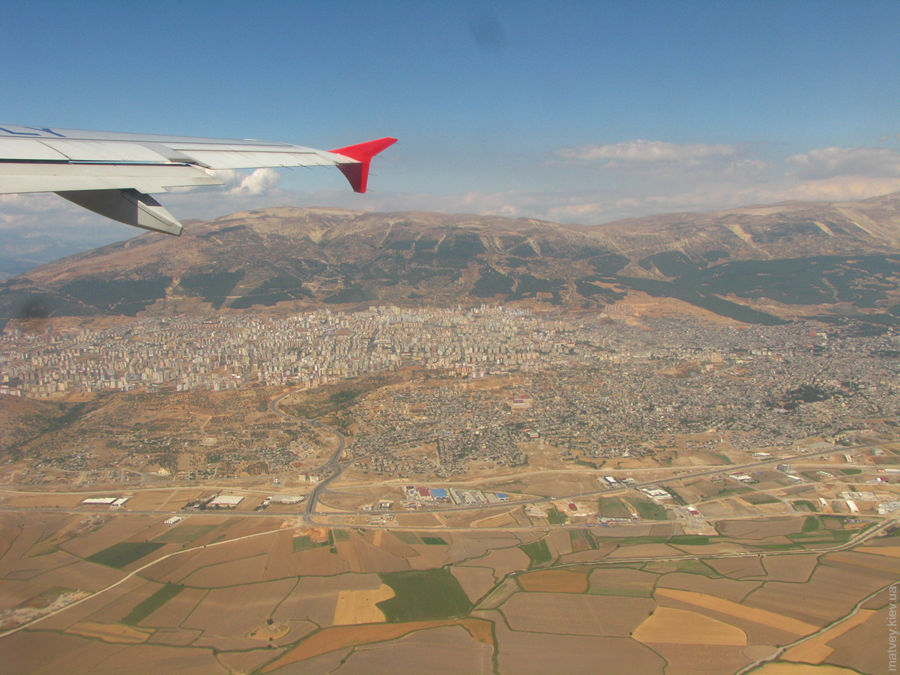
I saw cars left with open windows and vegetable stands left unattended for the night. I asked why so and was told that crime was low in Marash.
It was possible to visit buildings under construction to look at the rooms on almost any stage of completeness. We did so, and I was envious at room sizes. The apartments were made huge, having more than one balcony, more than one bathroom, and these rooms were all big — a ping-pong table could be installed and played somewhat actively. I've seen one balcony that could fit a big SUV inside.
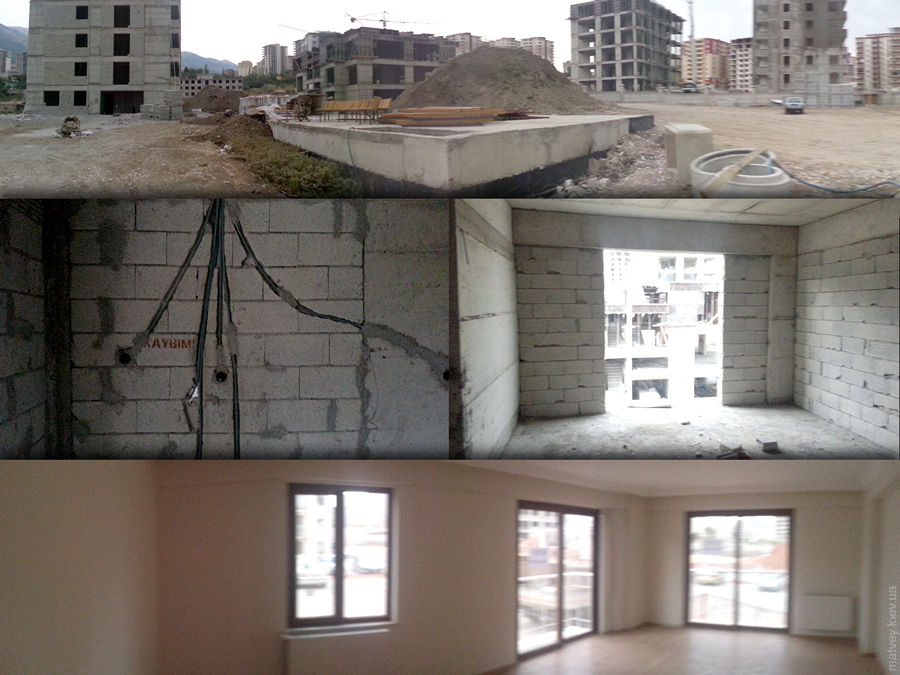
It also looked like the business side of construction was also different in comparison to Ukraine's: first build then sell, not vice versa.
There is a hill with a historical fortress in the old center of the city. The museum was closed, so I only saw the views from the hill, and the walls.
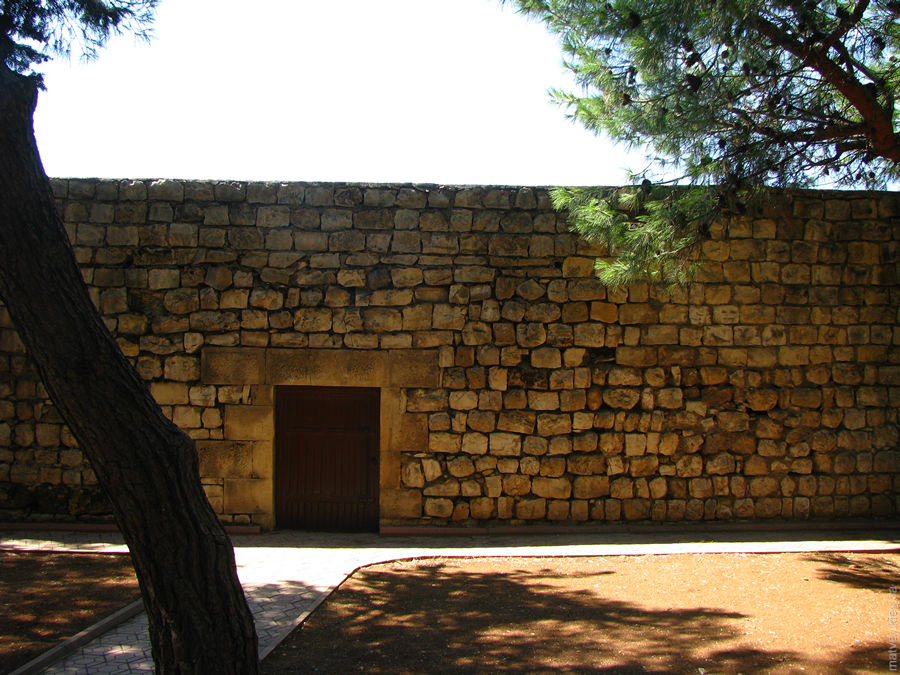
A cannon stood in the fortress' tidy garden.
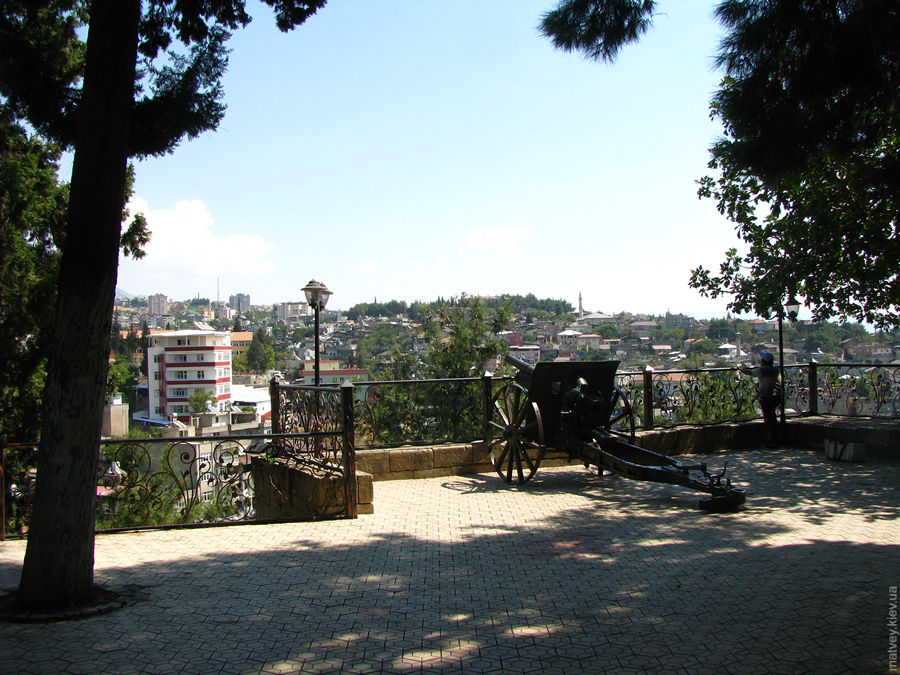
Kahramanmarash is famous for its ice cream, with theatrically annoying ice-cream vendors entartaining tourists in other big cities under the «Maraş dondurma» trade name. Well, do not waste your time on that, because the Marash ice cream is to be eaten only in this city, for ecological reasons strengthened by laws.
The true Marash ice cream is made of goat milk with flower flour, which has put that flower population under heavy stress, endangering it. This ice cream is white with a drop of pistachio powder on top. It is sold calmly and politely — with zero theatrical grimaces — in large tidy cafe-like shops as well as anywhere simply from franchised refrigerators. I bought one from a minor car repairman shop. It is cheap in Marash — one small paper cup portion costed 1 lira, which was cheap for its taste. It was also very hard — I could not pierce it with a usual metallic fork!
Ice cream vendors absolutely cannot imagine a name without a «do» in the end. Look at the following list on japanese or spanish-sounding brand names that I met in Marash: Edo, Akdo, Mado, Mardo, Markado. That «do» (pronounced as in «dog») comes from the «dondur» verb meaning «to freeze». The taste difference was microscopic between the makers, so I recommend them all, with Mado being a close favorite.
It was September, and it was hot, though not as hot as in India — around 38°C. And there are many sunny days in the year. Everyone uses solar energy to heat the water. There are ridiculous amounts of these heaters.
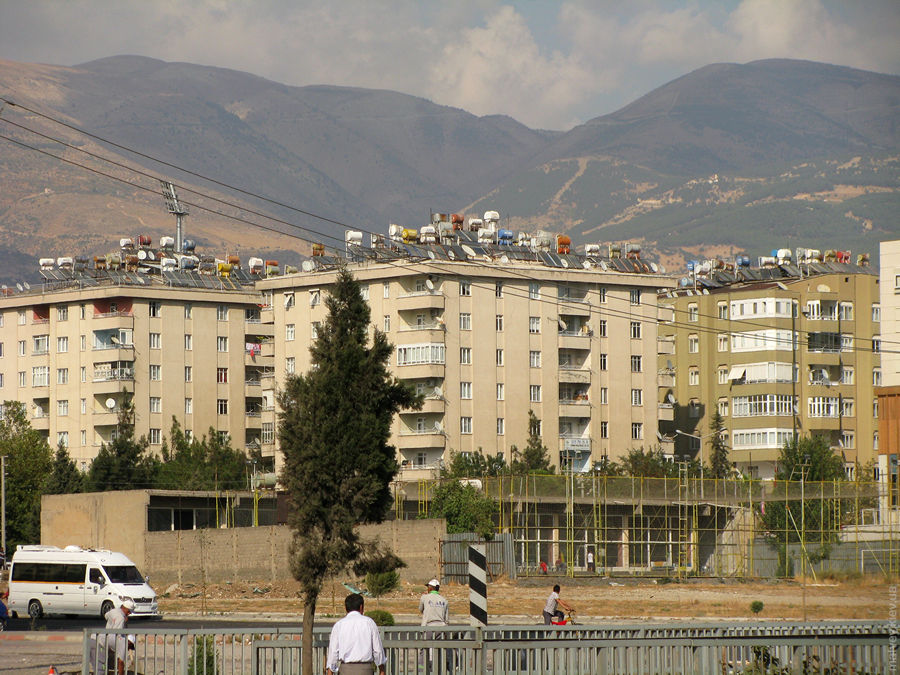
I had the chance to look at one such heaters up close. I was told that it was not of the simplest design.
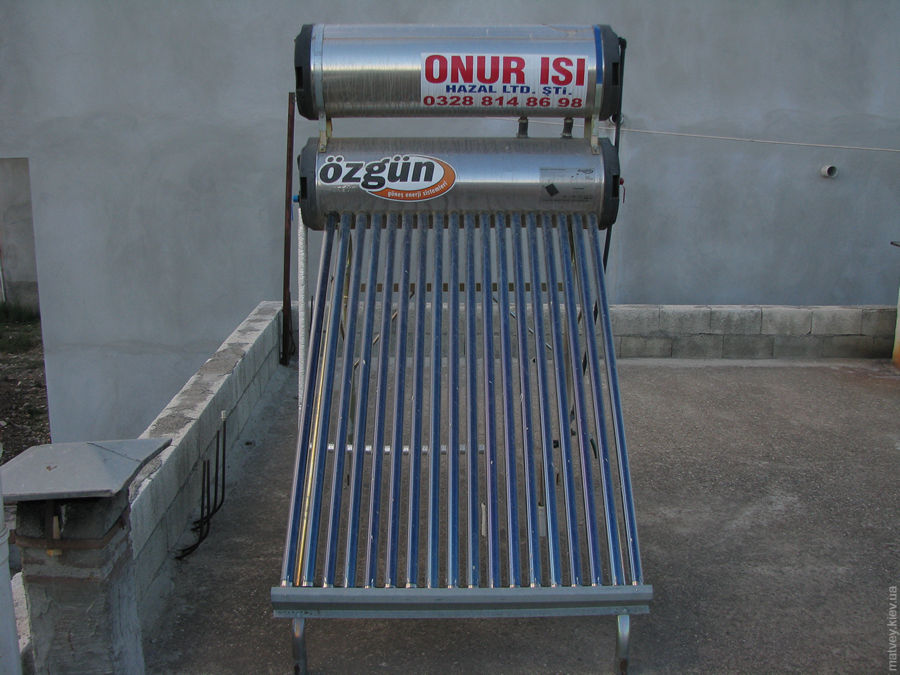
I was taken to a cafe high above the sea level — gaining 350 meters from where we stayed. The views were good.
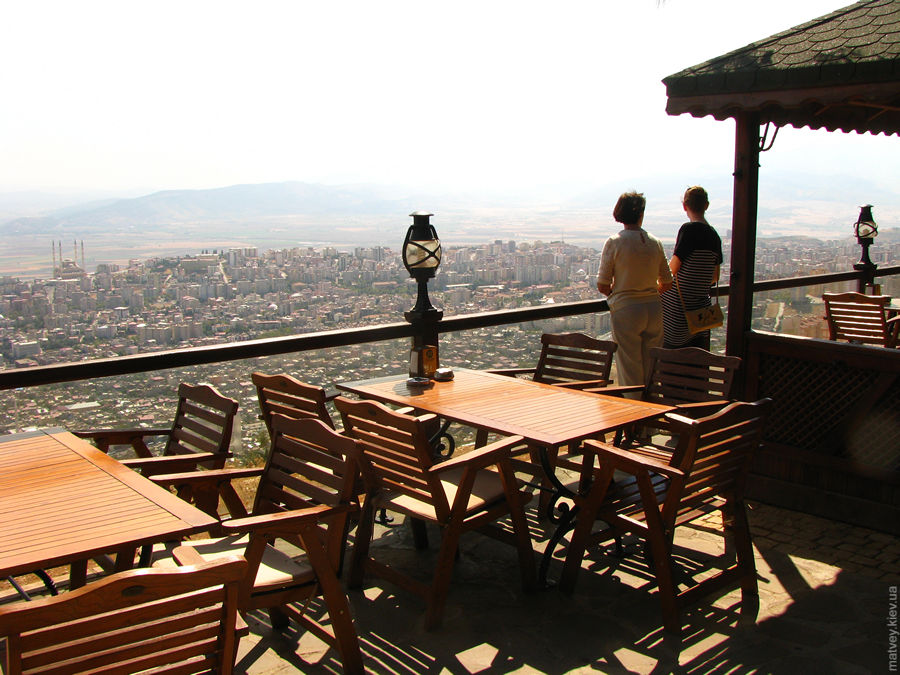
Epic views, actually. Would have been good to see this valley in all flavours — sunrise, sunset, and during a rainstorm.
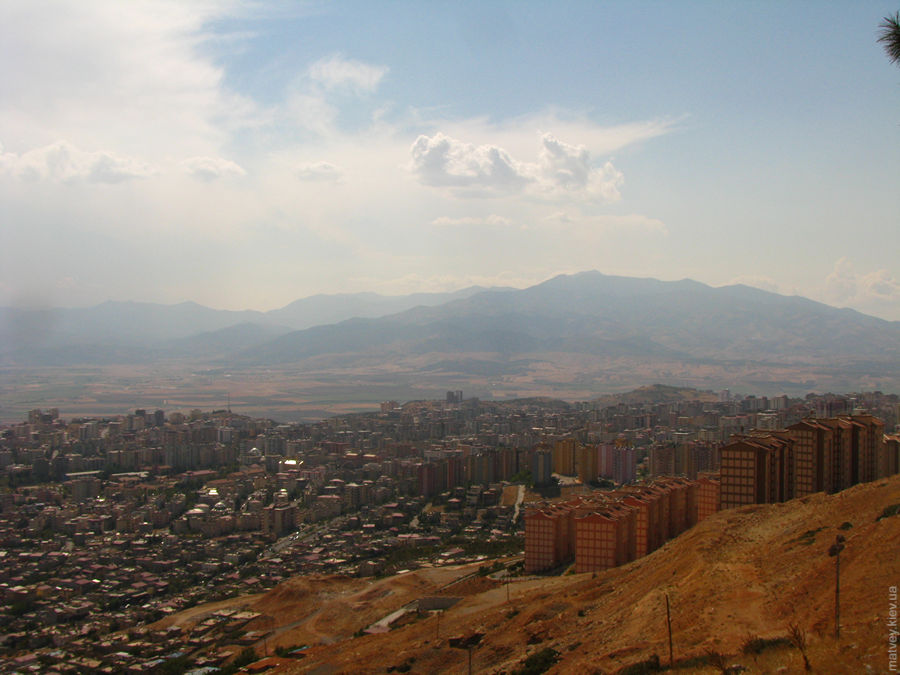
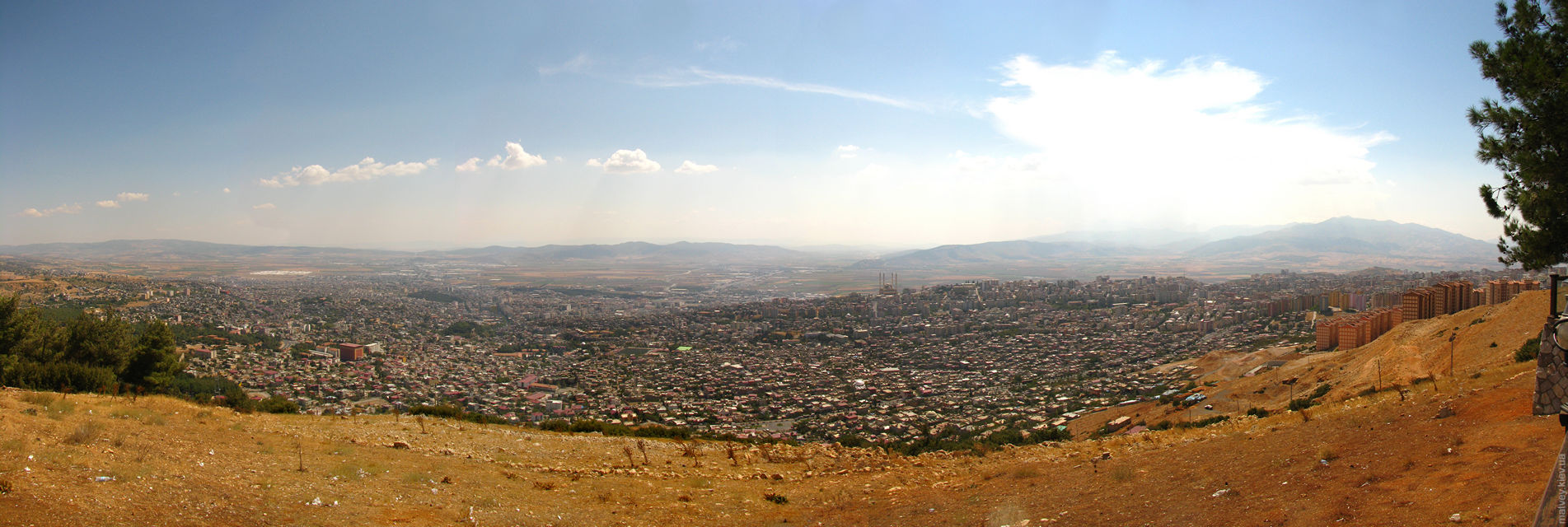
A syrian refugee camp was visible from that height. The war in Syria was the main topic of Turkish news.

The schools began their year on September 15-th. A monophonic melody of Beethoven's «Für Elise» was used as a school bell in Marash, in all schools that I saw except one that had some Turkish tune. Here's a chessboard in a kindergarten.
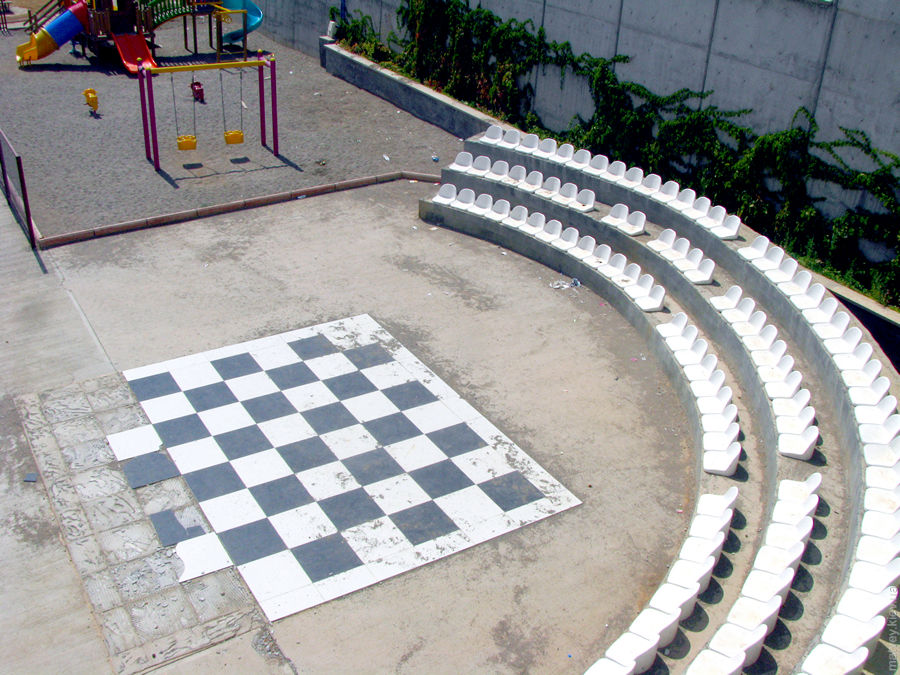
15-th is also a salary date, so all the ATMs had queues.
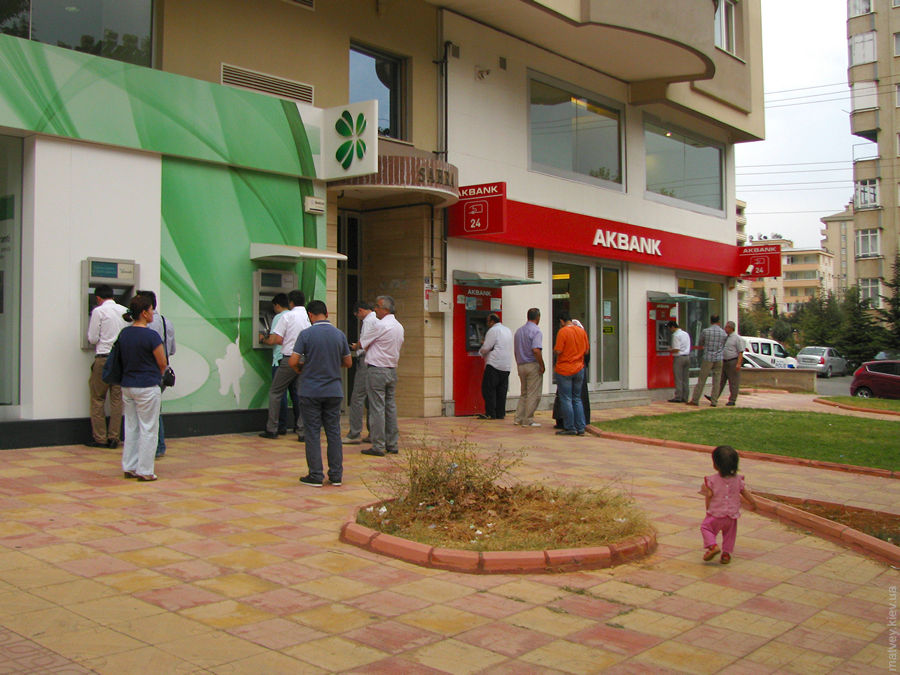
Fire escape stairs on new houses.
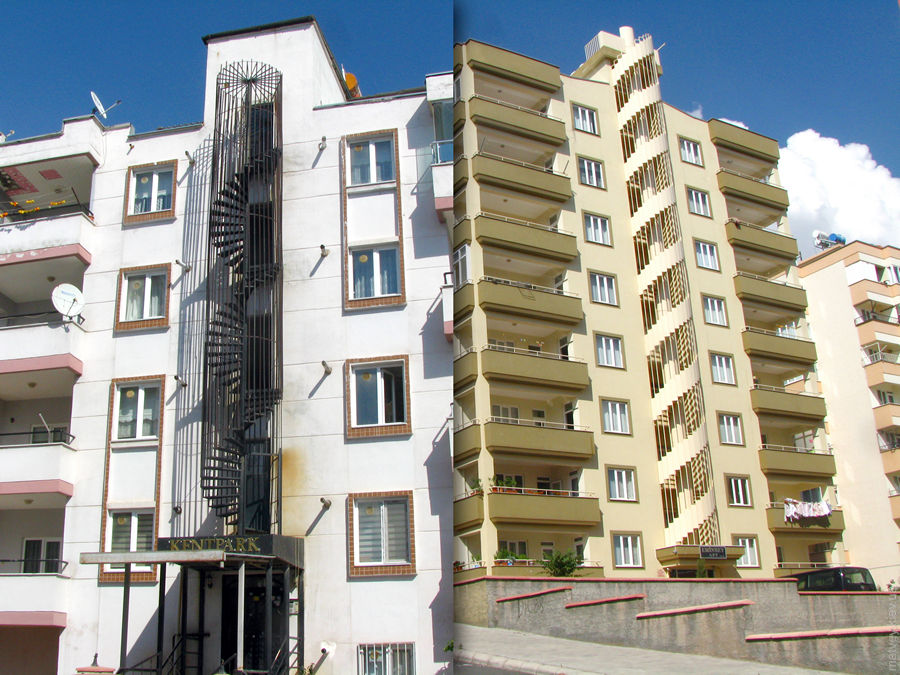
The külliye of Marash's new Abdulhamit Han mosque is indeed a new one — it includes a car parking.
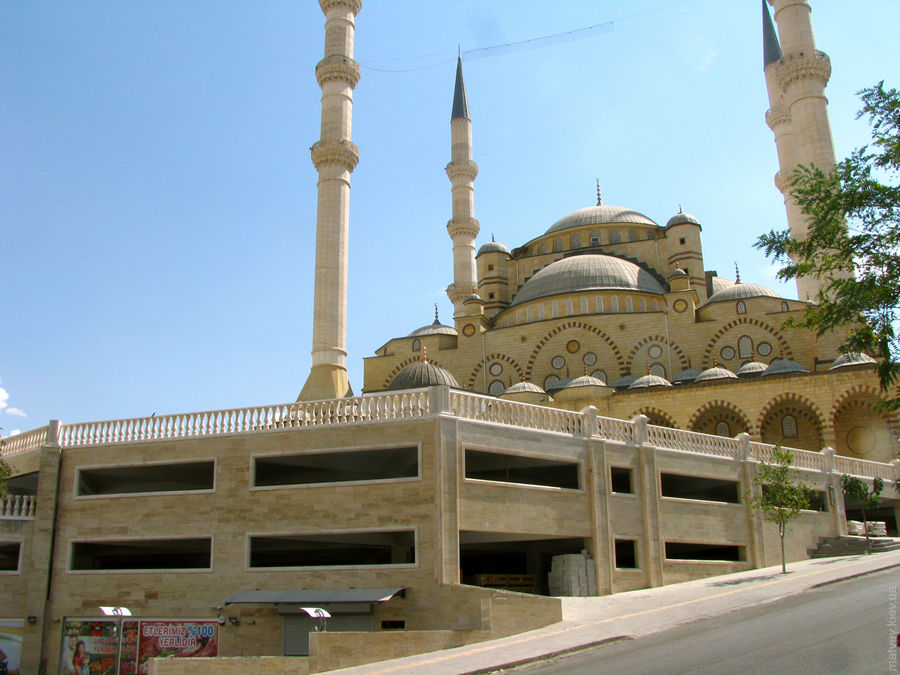
One does not need water while walking through the hot city of Marash. Water fountains are everywhere, separated by 500 meters approximately. I saw new and I saw old ones. They had different forms, like a tree stub-like fountain seen in a playground. And it gets so hot here that you will be using these fountains quite often. Not sure if I need to state this, but it is free of charge.
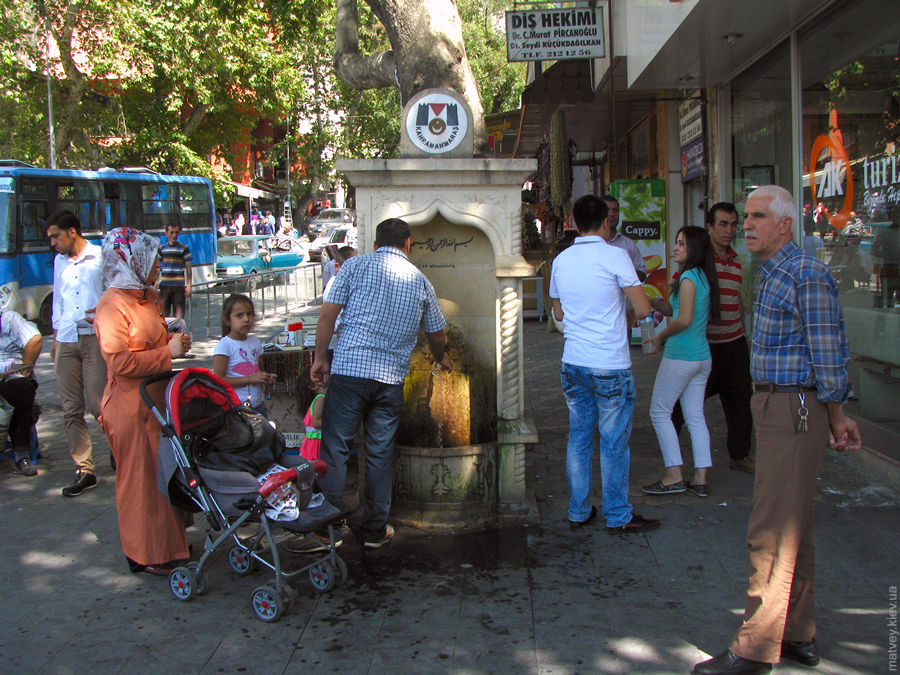
Some old dwellings in the older part of town were abandoned, perhaps because the owners have already moved to one of these newly built houses.
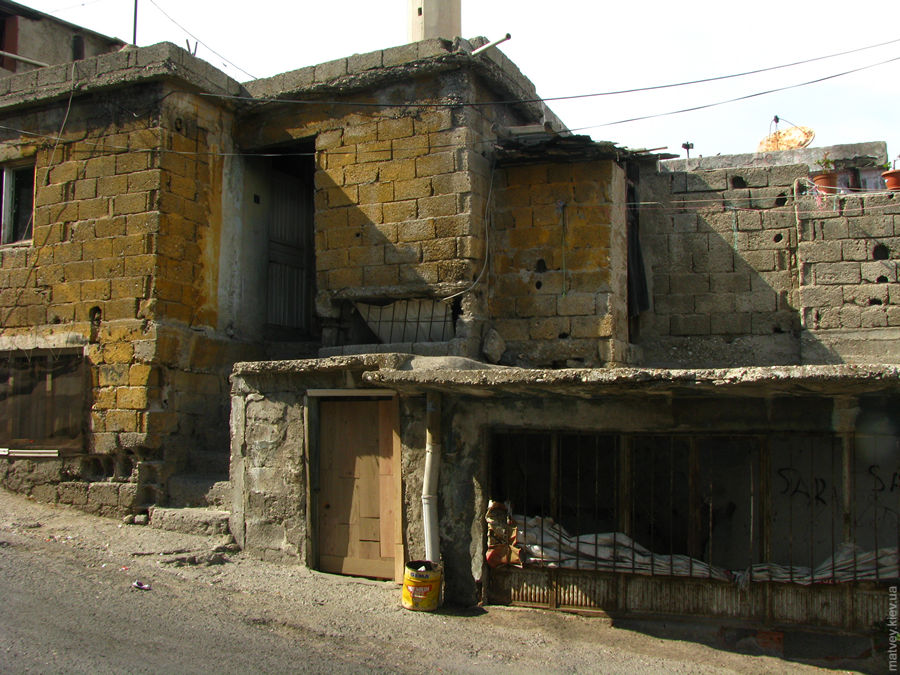
I saw a couple of dangerously steep streets, while streets with gradients of 12% were pretty common here, some of them pretty long, too.
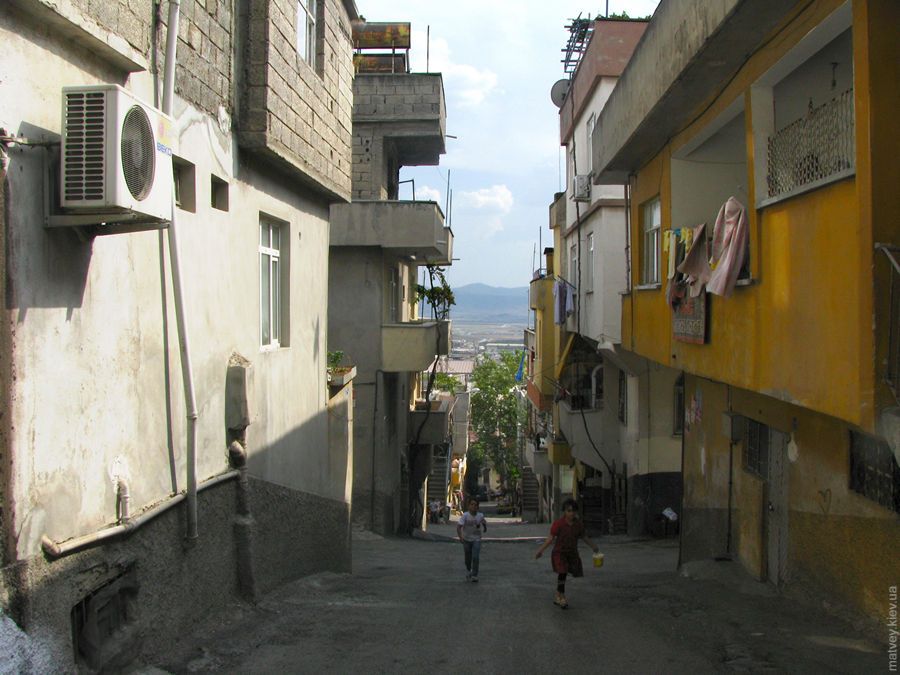
Terraces were cut to build streets and houses, which created this land-enclosed pit good enough to let rabbits and hens graze and enjoy some more freedom. Unexpected for a multi-storied living block to have chicken walking outside.
— Look, a rabbit!
— There's also rooster!
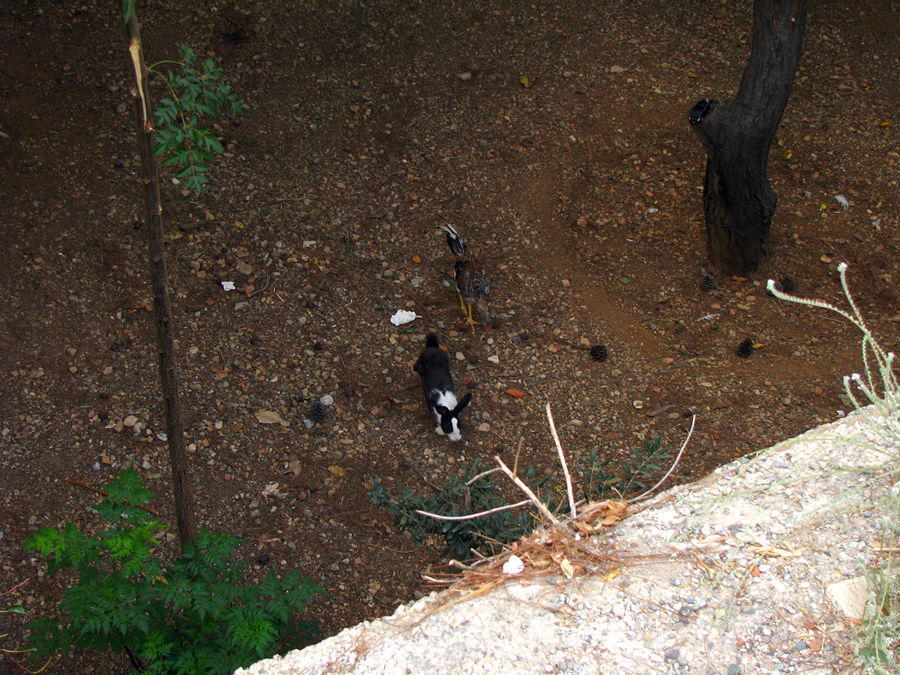
Some women were wearing traditional clothes, namely the fully-covering beige coats, with beige serving the purpose of being better than black in the job of reflecting heat. Higher albedo, to be concise. It was 42°C on that day, officially. It was even hotter than that near the sun-melted asphalt.
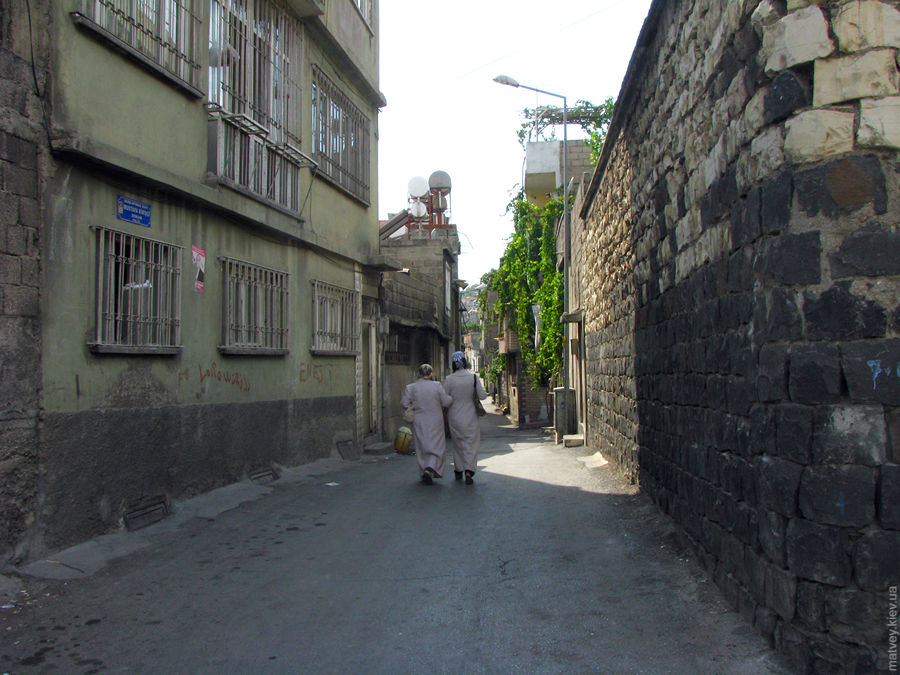
The stairs in Marash were often paved using tiles of alternating yellow and dark pink colors.
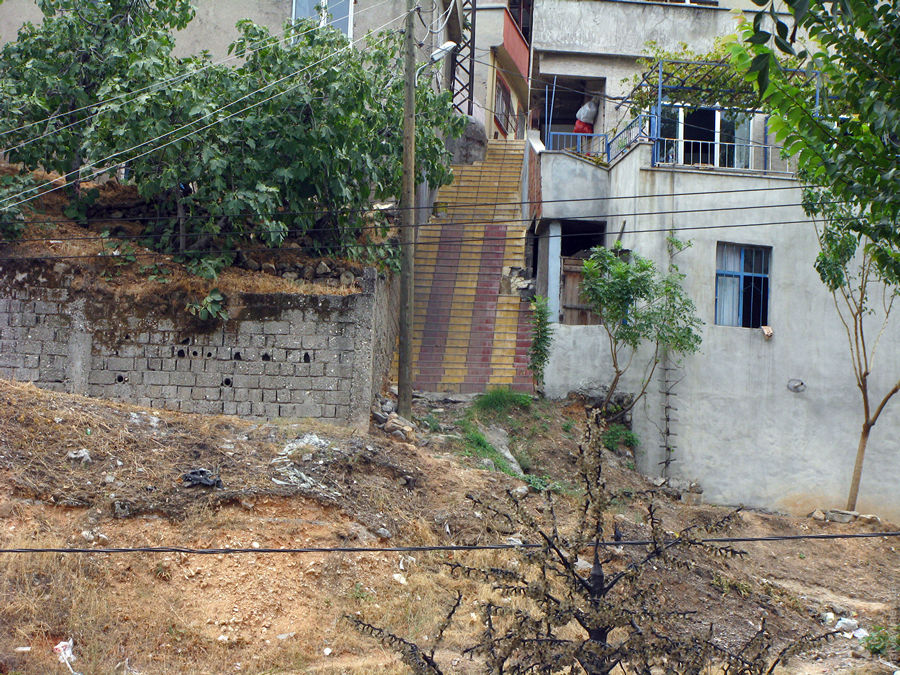
The heat was significant enough for road markup to vanish under the mixture of juices of tarmac and tires. I loved my Marash walks because I learned that I can withstand such weather.
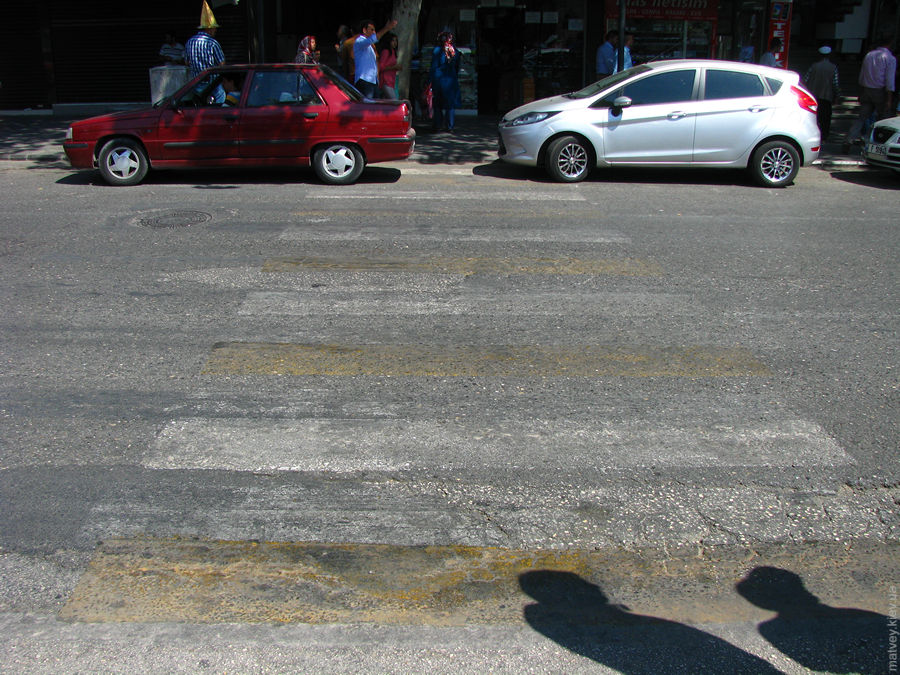
Pipes of individual heating systems, such as in Kırklareli or Ivano-Frankivsk were abundant on every building. Another interesting detail was that the Turks build water faucets in the walls on their balconies — it could be on a pipe, which was expected, or baldly built into the parapet.
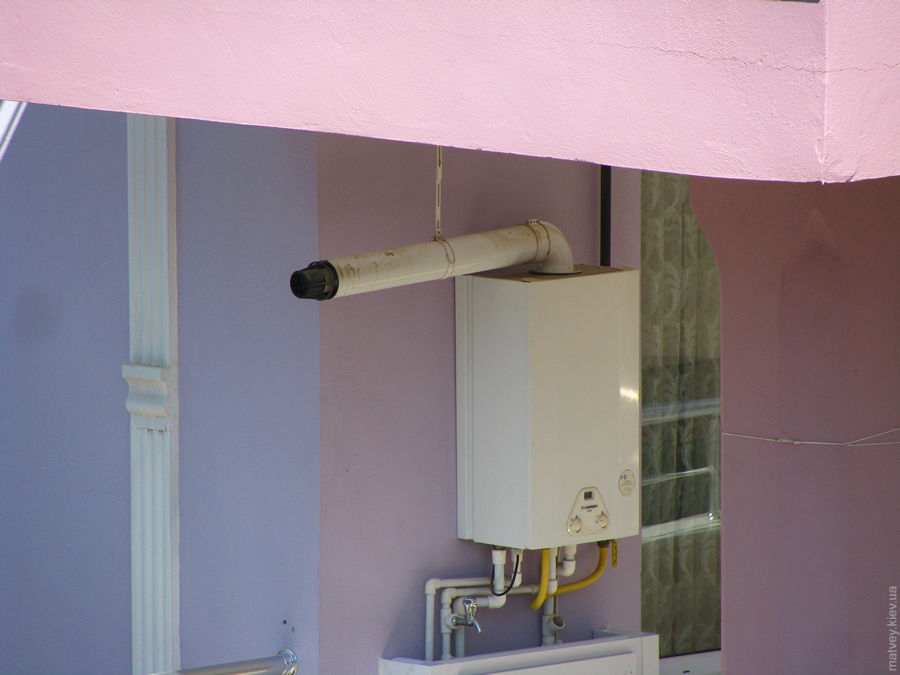
The shoes were to be taken off and left outside the apartment doors inside the house. There were at least two reasons for such behaviour: low crime rate in the city, and the locked entrance. Such doors resembling a painting by Mondrian were installed by the developers.
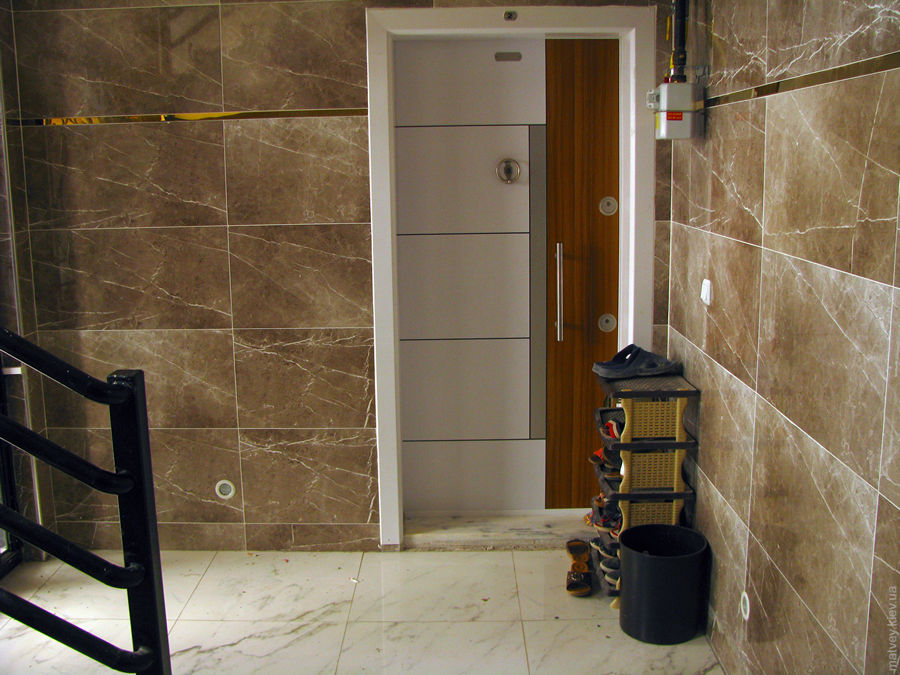
A relatively old building.
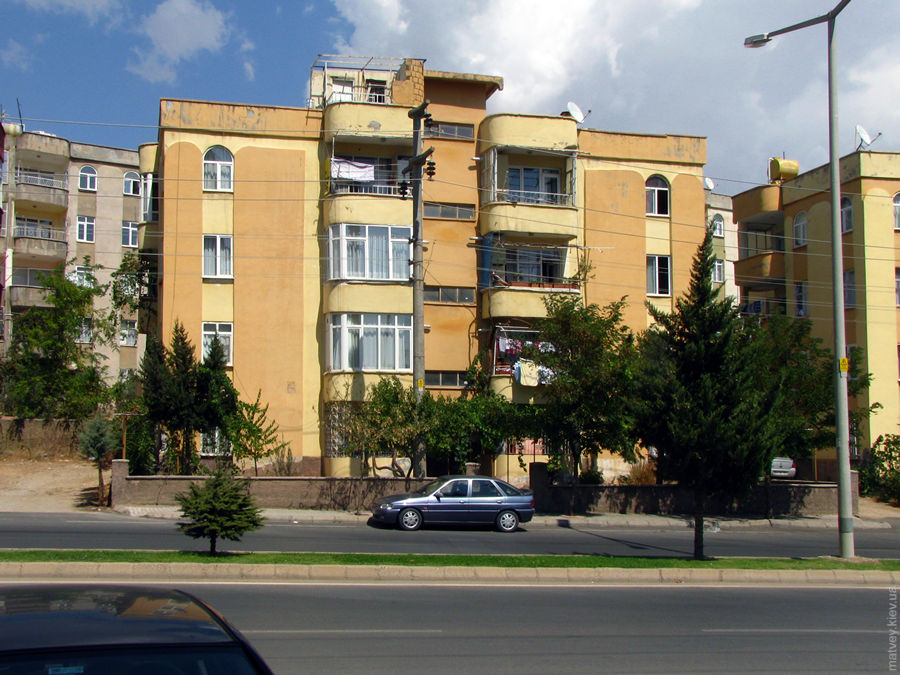
Some wool and skin of an Ovis aries drying up on someone's balcony.
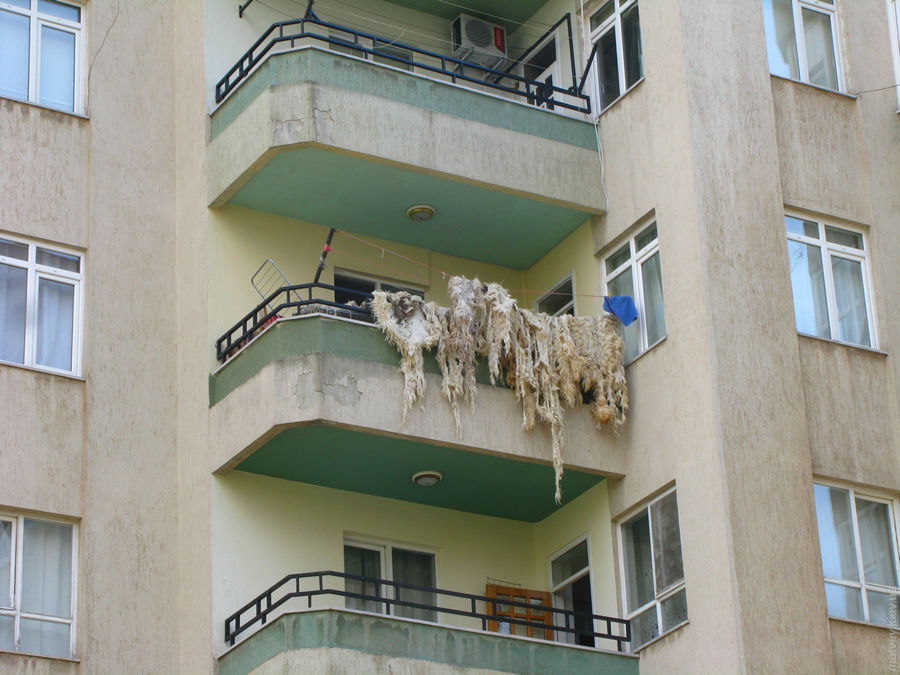
A service was advertised on a mosque: if you can not kill a sheep when it is required by religion, for example, if you are in a country that disallows ritual killing of animals, then you can call this number and delegate the deed to relatives, friends or subcontractors.
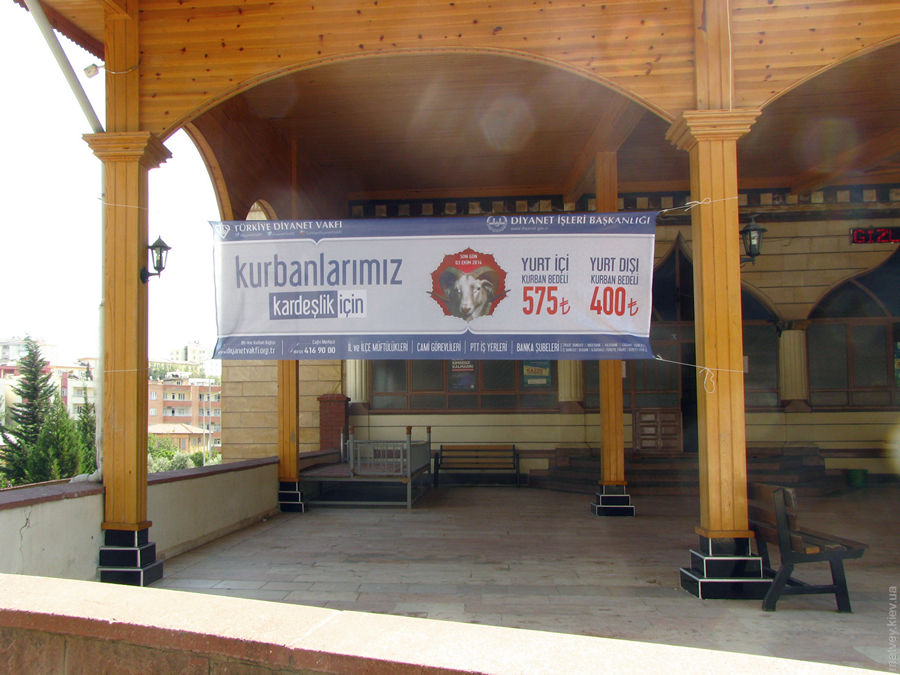
Other, less bloody things that could often be seen drying up on balconies were tomatoes and bell pepper. This is a balcony in the city center.
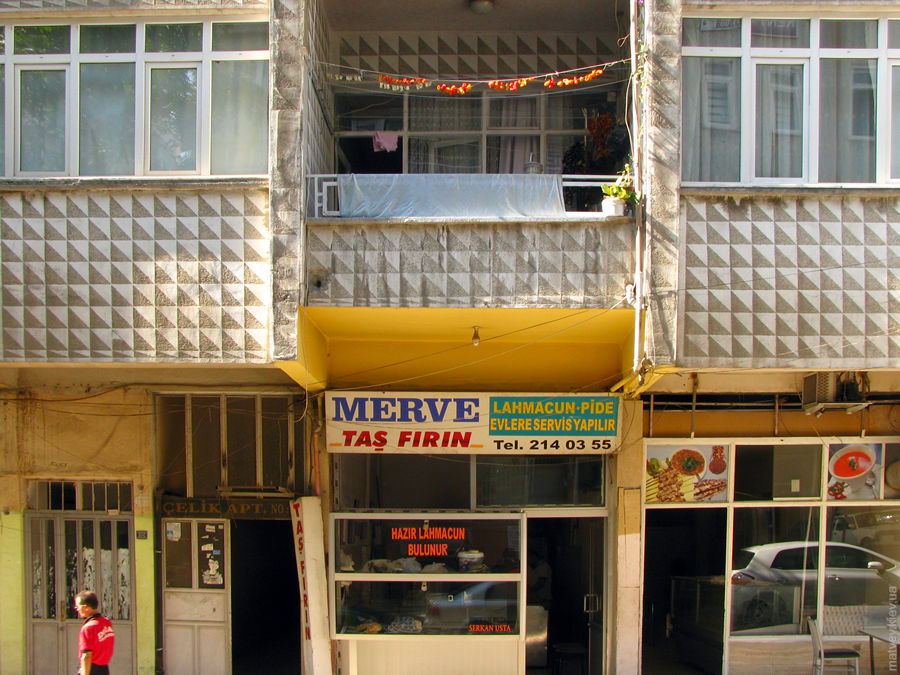
There were no insects — either because of the heat or because of the winds, which allows stuff to hang outside almost all the time (maybe, excluding rains).
«Eczane» means «Pharmacy counter».
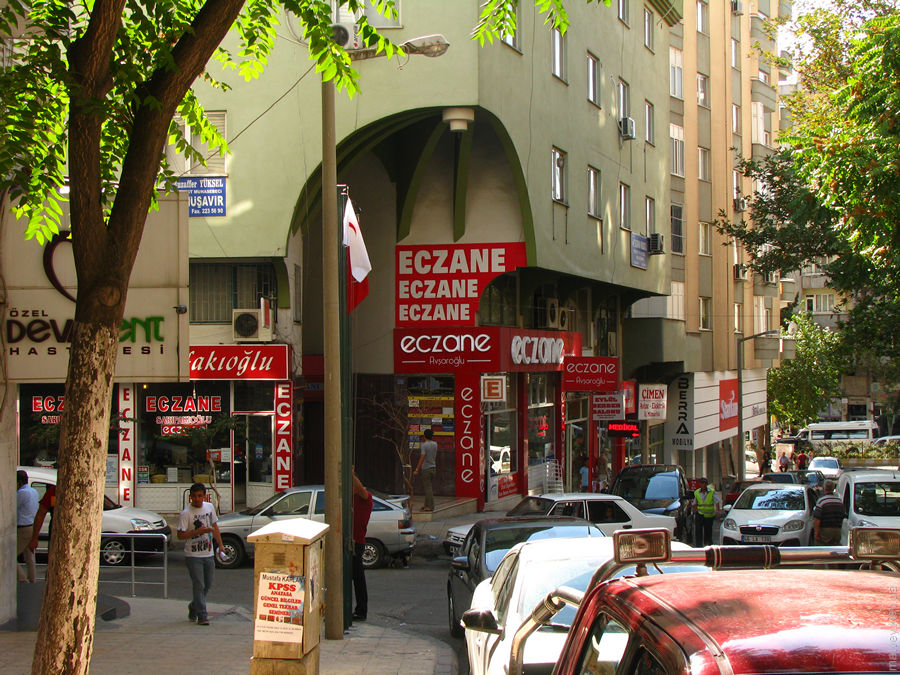
These are absolutely random men who, despite the language barrier, asked me to take a photo of them. We communicated using gestures and the guy wearing green, who knew as many words in English as I did in Turkish. He told me that the moustache like that simply had to be photographed. I obliged. They did not ask for the photo to be sent to them (and I did not think about offering to do that).
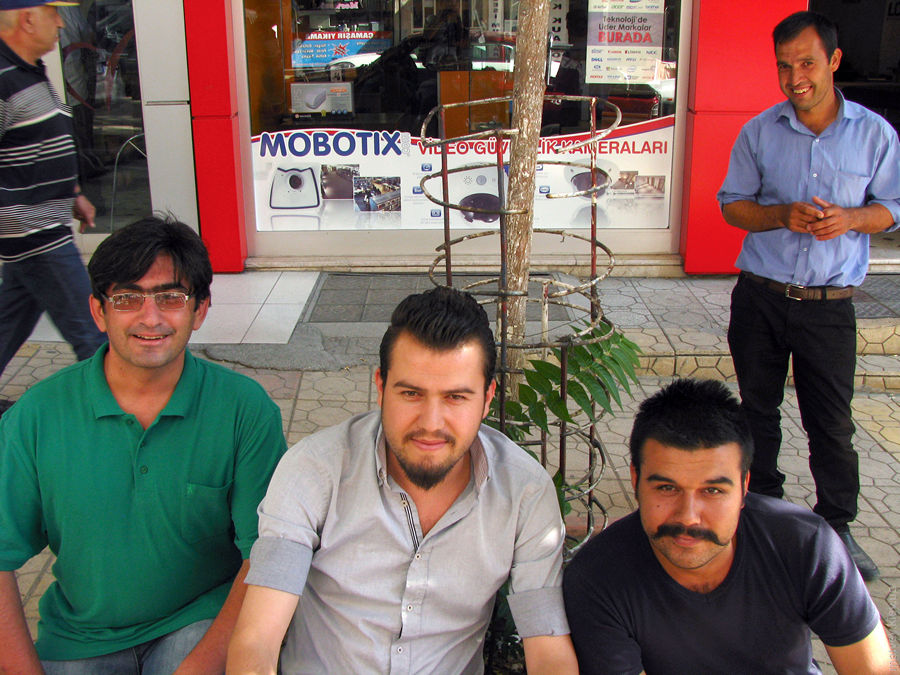
A fishmongers' part of the market.
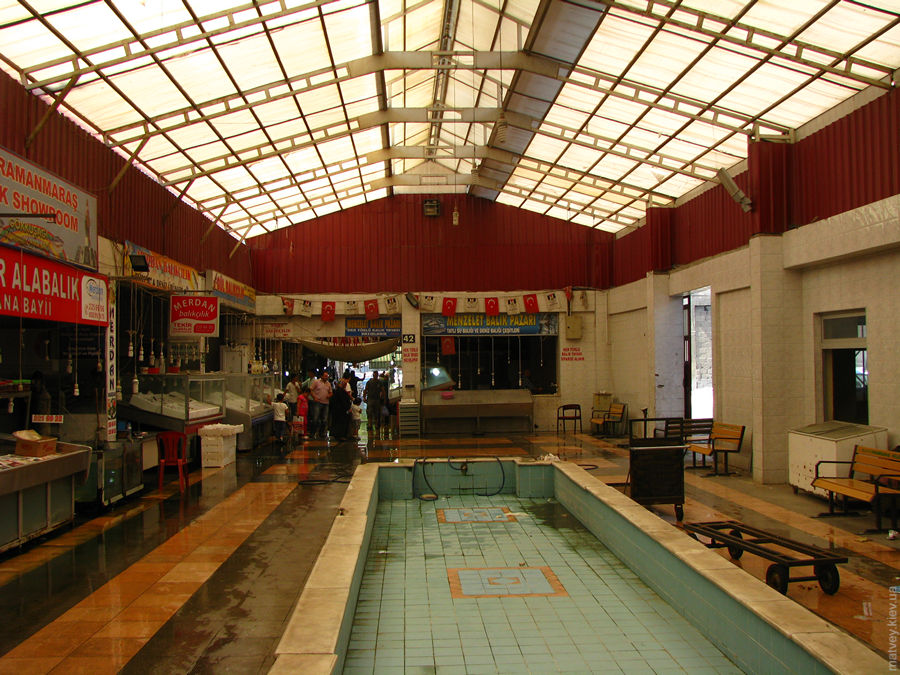
The fruit and vegetable market row was covered from the sunlight.
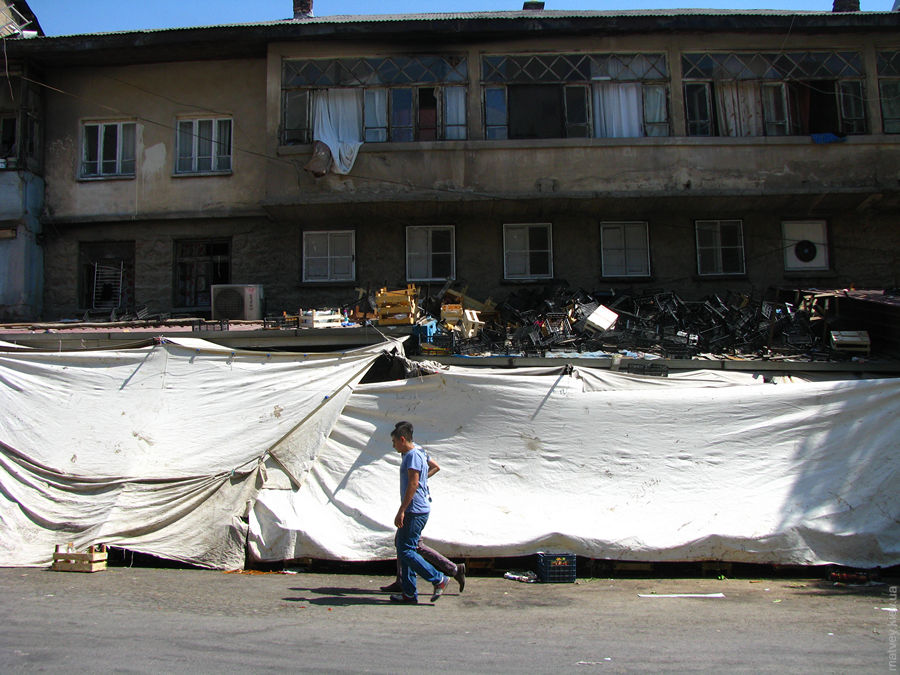
This drawing of a carpet existed for some reason.
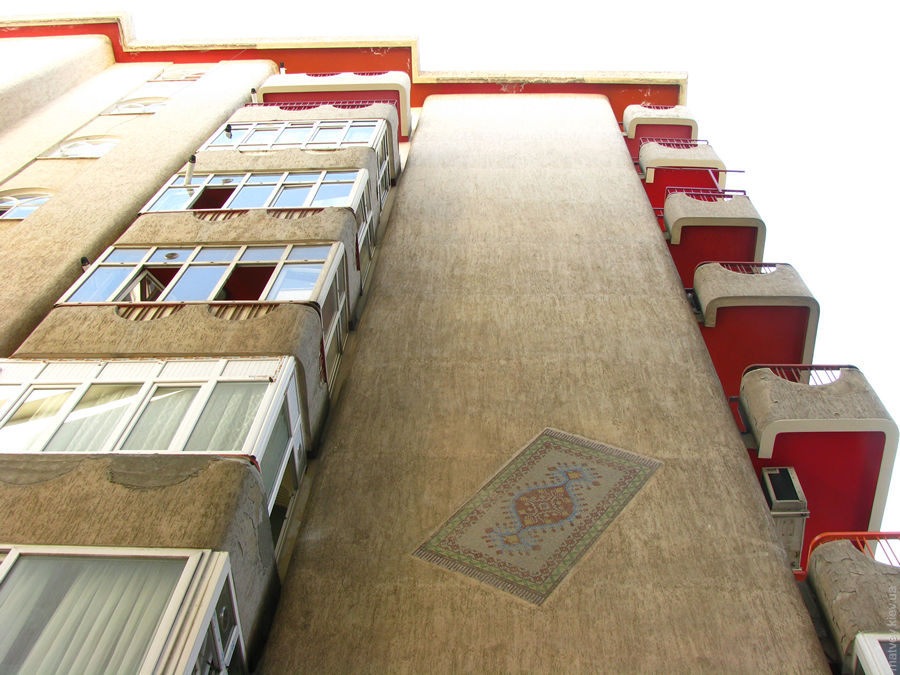
House number plates were tiny and not always present. This is the 21-st century, where numbers are not on the walls, but inside an offline map in your mobile device.
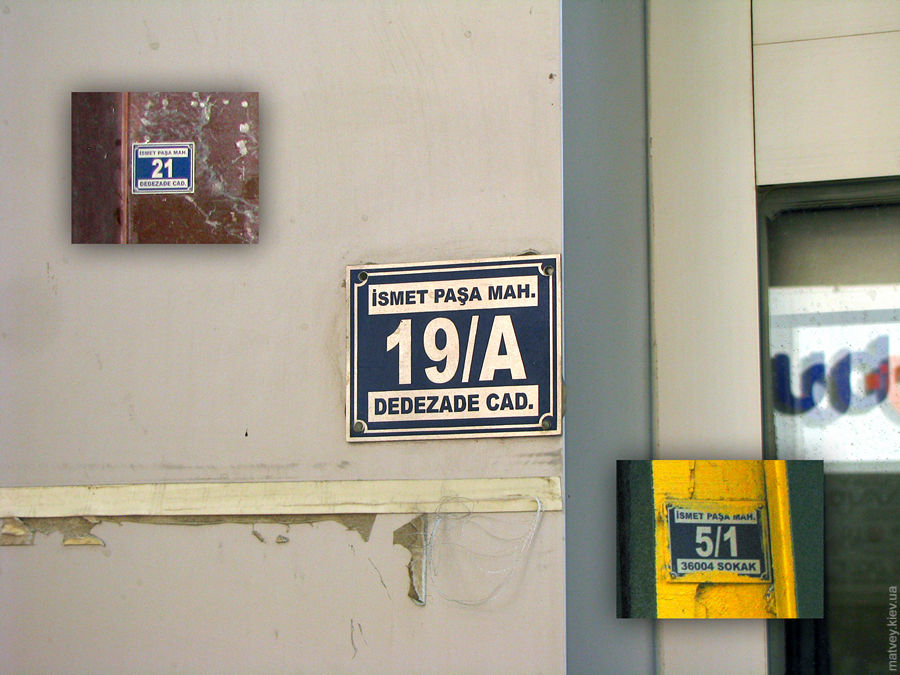
One more view of the valley to end this page.
